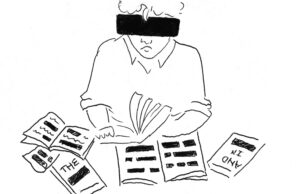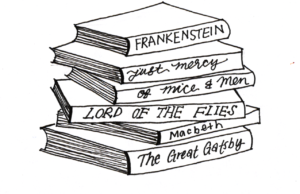Readers Take the Rights

Laughter, tears, joy, and sorrow, are all a part of the “book loving” experience, yet not every individual takes away the same truths, since books tend to bring out something unique from each individual that reads them.
Writers spend countless hours, days, months and years crafting their books with their heart and soul. Books are always being created in what seems like an endless cycle, pages constantly being created and bound to be read. Books span the globe, sometimes being read by millions, all with different backgrounds and each interpreting the book in their own way.
So the real question stands: Do books belong to the authors who create them, or to the readers who bring them to life?
The author has full reign in creating the characters, but as soon as the first reader opens the pages and smells that new book smell, the book no longer belongs to the author.
Obviously, the author has potential to argue that the characters are written for a specific purpose; they are just literary elements designed for the advancement of a plotline. But to the person reading the story and sharing in the emotional pain and struggles of the characters, they are more than simple vessels carrying the author’s message.
When an author writes a book, he or she has numerous hopes for the future of the book, some of these including the want to reach out to people, to show them a story and allow them to travel through the pages, experience new places and people, and also give the reader the opportunity to interpret it in their own way.
When Albus Dumbledore met his devastating fate in the sixth book of the Harry Potter series, it went to the very top of the “My Most Emotional Moments” list. Yet for some, it was still a tragedy, but did not bring tears streaming down their face. This just goes to show exactly how a book truly belongs to the reader and how it reaches each person differently.
Without the author, there would be no book; he or she creates the masterpiece, gets the words down on paper. However, without the reader, there would be no story; each individual creates their own world from a book, and they define it as it is important to them.



